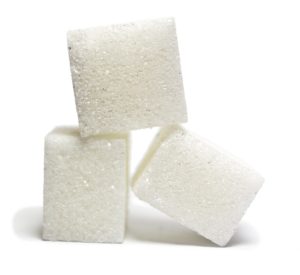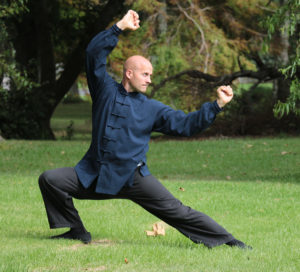
Wouldn’t it be wonderful to be happy ALL the time? It might not be the blessing that you think it would be! In this article I put forward a solid case for the controversial view that it is not natural, healthy, or even desirable to ALWAYS be happy. There are also some links to useful tools for helping you to release blocked emotions from your body that might be getting in the way of you living your life to the fullest…
TL;DR (sometimes these articles can get a little long, so here is the one paragraph version,, if you have the time I do recommend reading the whole thing though ????)
All emotions are healthy for us. They are part of the tapestry of life and what makes life interesting and worth living. They only become unhealthy when we have them in excess or become stuck in an emotional pattern, otherwise there is benefit in experiencing and expressing every type of emotion.. Emotions are not just something abstract in our heads, they are our subjective interpretation of physiological changes in our bodies. Our bodies release different hormones and assume different postures and muscle tensions for different emotions. For example when we experience FEAR our body releases adrenaline and pulls the shoulders up and in to protect ourselves. There are different characteristic responses for each different emotion. These responses are natural and healthy. Without them we cannot respond to different situations as effectively as possible. When we try to have the same emotion all the time we do not allow ourselves to respond effectively to different situations and we can end up repressing emotions and holding them inside – literall as tensions in our muscles and organs and in the hormone profiles of our bodies. Qigong can be a great tool for releasing these deeply held emotions. Qigong Foundation Practices teaches a series of exercises that balances the posture and muscle tensions related to each of the different internal organs and emotions. Another tool from Qigong that is very useful for releasing blocked emotions uses sound to vibrate and massage the organs to release the tension held in them. A special mini course which explains this type of practice and shows you how to use it can be accessed by signing up to the Long White Cloud Qigong Newsletter using the signup box below. (If you are already subscribed, just put your email address in anyway – it won’t double subscribe you!).
The Modern World and Social Media
I don’t know if you have noticed, but the world has changed a bit over the last decade or so. For one thing there has been the rise of social media. This is wonderful! It allows us to keep in touch with friends and loved ones all over the world more easily, and to communicate in rich ways using words, photos, videos and even an occasional emoji ????. We can share news and information, and learn about things that are interesting and useful to us. But with this wonderful technology of social media also comes increased social pressure. We can feel like we always need to look a certain way, be doing certain things, and to even having certain emotions. In particular, now more than ever there can be pressure to ALWAYS be (or at least LOOK) happy.
There is nothing wrong with wanting to put your best foot forwards. There is value in emphasising the positive in our lives and not dwelling on the negative. What we focus on tends to increase, so if we focus on good things that make us happy this CAN actually help us to experience more of these. Also, not everyone needs to know about every detail of what goes on in our lives, our ups and downs and different challenges. We may naturally want to share the ‘highlights’ of our lives, without going into the full story of everything that is going on.
The problem arises when we feel the pressure to ALWAYS live up to this public persona and carry this over into our day to day private lives as well. So why would we not want to BE or even LOOK happy all of the time?
Emotions Arise From Real Physiological Changes In Your Body
Sometimes we can have a tendency to think of emotions as abstract things… ‘just’ emotions. But emotions are our subjective interpretation of physiological changes within our bodies. We make these changes to help us to better deal with different situations that occur in our lives. For example fear is an interpretation of the sensations we feel in our bodies when we release adrenaline. We release adrenaline to increase our heart rate, dilate our pupils, increase blood flow to the external muscles etc to help us deal with something that could be dangerous to us. Fear is an appropriate response to such a situation.
Physiologically other changes also occur along with the release of the adrenalin hormone, our posture changes as different muscles contract in response to the demands placed on different organs, and as we instinctively shape our body in ways to most effectively meet the challenges of the situation we find ourselves in. If we do not allow ourselves to feel the fear, and even to look fearful, then we do not allow ourselves to fully adapt and respond in useful ways to the situation we find ourselves in.
I can imagine some of you reading this starting to switch off or to object to what I am saying, because fear is bad right? Why would we ever want to feel or look fearful? We tend to put value judgments on different emotions, FEAR = bad, JOY = good, ANGER = bad, and so on. Well, FEAR will keep you alive sometimes. That’s not such a bad thing is it? As we develop a less simplistic view of emotions we come to understand that ALL different types of emotions are good and healthy for us. (It can help to also understand that we can control how we interpret the emotions we experience and the labels we put on them. If you haven’t read it before you might want to check out one of my previous articles that dealt with that here, (do it, I think you’ll find it fascinating)).
All Emotions Are GOOD
Emotions are part of the richness of life. Can you imagine what your life would be like without emotion? Or perhaps with just one emotion? How much would you enjoy eating if every food JUST tasted sweet? Every emotion has its place within our lives, without the experience of all of them our lives would be unbalanced, incomplete, and healthy. Just a variety of flavours makes food interesting and enjoyable, experiencing the full range of emotions makes our lives full and worth living.
Emotions only become unhealthy or harmful to us when we have them in excess, or if we become stuck in the emotion so that it persists for too long. These conditions can cause the physiological response associated with the emotion to be too strong – causing harm and imbalance; or to also persist for too long in the body – again causing harm and imbalance.
So what happens when we try to maintain the same emotion ALL the time?
Well as a brief analogy, lets revisit what would happen if you tried to make ALL of your food sweet ALL of the time. You could do this by just eating sugar which is great in that it would give you plenty of energy for activity, but what about the other nutrients that you need to support that activity, the protein for healthy muscles, the minerals for healthy bones, the fats for healthy nerves? Just eating sugar wouldn’t sustain your health very well. So you could try eating other nutrients as well, but just coating them in sugar so you can’t really taste them. You would be getting the other nutrients, but you wouldn’t be able to identify what it is exactly that you are eating from the flavour. You could easily end up consuming things that are very harmful to you and not even know it because everything is drowned out by the sweet taste. And still… all that sugar – not a recipe for health and wellbeing.
Performance
So looking more specifically at the emotions what happens? Well… for a start it doesn’t allow us to adapt to different situations as effectively as we could. Our hormone profile and posture will not be permitted to adjust fully to the different demands placed on us. We need different responses to be able to respond most effectively to different challenges, so our performance will be sub-optimal if our response to everything is just HAPPY.
Repression and Stagnation
Even if we try really hard to maintain the same emotion all the time, our body will still try to adapt to the different situations it finds itself in, but because of the desire to always SEEM to have a particular emotion, it won’t be able to fully make the changes to your hormone profile and posture as you try to hide them under a veneer of the “positive” emotion you are trying to maintain the appearance of. This can lead to the emotion becoming repressed or ‘stuck’ in your body. Because your body has not been able to fully express the emotion it continues to try to process it internally. Even though it is hidden, this can cause your body to maintain tension in muscles and continuous release of hormones for much longer than is needed. In fact this situation can persist until the emotion is uncovered and fully expressed so that the body can move on out of this pattern. Being stuck in this pattern of repressed emotion can of course lead to many health problems, but it also simply makes it harder to experience life fully. When we are stuck in one emotional pattern, whether it is superficially apparent, or buried and repressed, it is harder for us to then respond appropriately with other emotions as situations require them. We find ourselves at odds with life, and maybe not really sure why.
Communication
As humans we respond to the emotions of others around us. If we do not allow ourselves to express our full range of emotions, we rob ourselves of a valuable aspect of our communication. If our response to everything is HAPPY, then how will people know when they need to change their actions around us. Sometimes people need to see and feel expression of our ANGER in order to motivate them into action. Other times people need to experience our expression of FEAR in order understand our need for more reassurance and protection. Sometimes we tend to think that expression of these types of emotion is a sign of weakness, and there are situations where other people may perceive it that way. But in many situations, every aspect of expressing emotion, not just words, is important for communicating honestly and effectively. If we don’t allow full expression of our emotion, we won’t fully get our message across, and end up being misunderstood and frustrated by peoples lack of understanding and appropriate response to us.
Mental and physical health crisis
I think it would not be overstating things to suggest that a large part of the current mental and physical health crisis that we are experiencing in Western developed nations is due to our desire to always be HAPPY. This creates a fundamental mismatch with the circumstances of life and leads to all sorts of harmful coping mechanisms to try to achieve an impossible and not even desirable ideal. If we go back to our analogy of the flavour SWEET, what happens when you keep eating too much sugar for an extended period of time? Eventually our mechanisms for metabolizing and dealing with the sugar (specifically our production and sensitivity to insulin along with some other factors) breaks down, and our body simply can’t process it anymore. Obesity, diabetes, and all it’s related health issues ensues (wait a minute, that sounds exactly like what is happening in the west at the moment…). Emotionally if we try to be HAPPY or EXCITED all the time… well the same thing happens. Eventually our ability to be happy breaks down leading to depression… (Oh dear, that seems to be very widespread now too…) ☹
What can you do about it?
I’ve just painted a rather gloomy picture. It could cause an emotional response in you as you read it, maybe some feelings of unhappiness or worry. The tendency could be to brush over this and move past it because it is uncomfortable. But I would encourage you to let it sink in for a few moments. To truly deal with things properly, we need to first truly feel them. Let yourself dwell on the implications of our obsession with happiness for a few moments so that you can appreciate what it means on a deeper level within yourself. By doing this you are more likely to do something effective to change this in your life. What are some of those things you can do.
Change Your Expectations
For a start you can change your expectations. Don’t expect to be happy ALL the time, expect a range of different emotions. Look forward to them, embrace and relish them. Each emotion is part of the rich tapestry of our lives, to be celebrated for the beauty and contrast that it brings. Once you have changed your expectations you won’t feel like there is something wrong with you if your life is not one constant saccharine sweet parade of social media worthy happiness and excitement. You will be more ready to deal with the diverse situations of life authentically and honestly. Your body will be able to adapt more easily to the different circumstances you find yourself in, both physically and psychologically. And you will be less likely to want to bury or suppress an emotion because it is not ‘nice’ or ‘acceptable’, and in so doing be less susceptible to the attendant aches, pains, discomfort and health problems that can arise from such suppression.
A Neutral state
So if you’re not going to be happy all the time, how can you expect to feel? Well embracing your emotions doesn’t mean that life should be one continuous roller coaster of ups and downs and twists and turns as you swing from one emotion to another. Sure, it will have its wild times, but most likely, most of the time you can expect your resting state to be neutral. Not happy, not sad. Not angry, not fearful. Just neutral.
NEUTRAL??!? Coming from our cultural predisposition to constantly seek excitement and happiness that might sound a little boring. Surely just feeling NEUTRAL most of the time can’t be healthy? Well actually it is very healthy. You see when we are already strongly set in one emotion, in order to properly experience another emotion we must first release and move out of our existing emotional state. This can take a little while, it slows our emotional reaction time, and because of it we can miss the more subtle emotional influences in life, because they are not strong enough to shift us from our set state. When we are neutral we are ready to more easily respond to the subtle experiences of life. We can more easily recognise and FEEL the emotional influence of small occurrences in our lives. Small pleasures and displeasures. Fears, worries, reassurances. We can truly experience and enjoy them because they are not blanketed over with one strong pervasive dominating emotion. Our life actually becomes richer and more responsive by allowing ourselves to have being neutral as our resting state.
How Can Qigong Help?
But how can you achieve this state of neutrality? First you are going to need to clear out the old emotional patterns you are holding onto in your body. Qigong is a great tool for coming to understand yourself and uncovering and clearing old buried and repressed emotions. You may have already gone through the Qigong Foundation Practices course on the Long White Cloud Qigong website. If you have, you will know how effective the exercises in this course are for releasing postural habits related to different emotions in our bodies. As the posture changes, the other aspects of the physiology, the hormone profile and activity of the organs also changes – helping you to become balanced and healthy, strong and resilient. If you haven’t already, you might like to check out these exercises in this course here. There is one exercise for each of the main internal organs and meridians, and their relationship to the different emotions is explained clearly as you progress into the course.
There are other qigong practices that are also very good for clearing built up emotion trapped in your body. One such type of practice uses the vibration from sound to literally massage and loosen tension held in the different organs, allowing you to physically let go of the emotions effect within your body. Sound interesting? It is! And also very, very effective. Up until now I have only shared these practices with a few people, but I would like more people to benefit from these powerful practices, so I have prepared a short video mini course explaining them and demonstrating how to do them.
This is a little bit of a sneak peek into Emotional Alchemy, the skill of harnessing your emotions so that you can use them as a source of positive power in your life. I plan to release more comprehensive training material on this in the future.
If you would like to access the special mini course, you can get it by signing up to our newsletter below.
(If you are already subscribed you can still enter your email address into the box and it will take you to the video – it won’t double subscribe you.)
If you know anyone who you think would find this interesting or useful, feel free to share it with them. You can also share this article on social media using the buttons at the bottom of this post.
Post-Script:
If you followed one of the links earlier in this article you would have noticed that it contains Star Wars references. Well there is some more relevant Star Wars news that relates to this. The upcoming new Star Wars: The Last Jedi movie will feature an older, wiser, Luke Skywalker who has mysteriously disappeared for many years. One of the prophesies about Luke was that he would bring balance to the force. There are rumours about what this could mean…
You see, in the Star Wars universe the Sith tap into their emotions as a source of power, but they tend to strongly lean towards emotions like Anger and Fear, and this leads to them being portrayed as evil. The Jedi on the other hand do not let themselves give into their emotions like this. They go very much the other way and do not allow themselves to form relationships such as marriage etc. While this is portrayed largely as being noble and good, it can lead to problems… such as the genocidal rampage Anakin Skywalker went on as a result of his failure to control his supressed emotions. Did Anakin fail because his character was flawed, because he was simply weak and not good? Or was it also due to the poor advice he received about dealing with emotions within the strict rules of the Jedi order?
Well, some of the rumours are that Luke Skywalker has been enlightened during his mysterious absence and become what some are referring to as a Grey Jedi. That he has learned to embrace his emotions rather than repress them, while still walking a path of goodness. I find the prospect of this quite exciting, and if that was George Lucas’ intention for the series all along I would have to say that he has greater depth than I ever gave him credit for. If it is portrayed in a good way, this would be a very healthy example for impressionable people to replicate in their lives after watching the movie.
Post-Post-Script:
Yes… even though I am quite knowledgeable about qigong, I am still just a regular person with regular interests like Star Wars. Qigong doesn’t magically transform you into a robe wearing guru who sits in the mountains and meditates all day (although that can be nice from time to time). It does give you really useful skills and understanding that you can apply to your regular everyday normal life though. Skills that can help you to live that life with more health, peace, and satisfaction.








6 Comments. Leave new
Beautifully written.. so on point. Thsnk you
This is a beautifully written article. I have been thinking about this a lot lately. There is no light without dark. No up without down. No Yin without Yang. Hot/Cold, Day/Night. It is when we are stuck in our emotions that it becomes a great challenge. And when the pendulum swings wildly one way it will swing wildly another. We talk about happy but I am much more at ease when I am content. A very mild sensation. Much like the neutral you talk about here. Have you ever noticed how feeling ecstatic can make our heart race and make us very active? Have you also noticed how anxiety can also make our heart race and make us very frenetic? Or active, too? Being more “neutral” helps us remain more neutral in differing situations. Go with the flow. As teachers it is crucial that we go with the flow. No two classes are the same, no students are the same, no responses to the material are the same. Remaining flexible in these environments makes for a better class and a better teacher. “Put on a happy face” or “Don’t worry be happy” isn’t always the best course of action. We have all known someone who just puts on a happy face all the time and they are exhausted and not really happy inside. BUT they feel they need to maintain the facade because that is what they feel is expected of them. Everybody has a less than perfect day. All the teachers we look up to: Gandhi, Dalai Lama, Desmond Tutu, Martin Luther King, Jr., etc. expressed themselves sometimes with passion and also with dismay. However, there is still a calm running parallel to that expression. Additionally, as teachers of Qigong or Tai Chi or Yoga, et al, we put so much pressure on ourselves to be that perfect example. To walk, talk, live and breath perfect master, guru or guruji countenance. It’s a tough role to play in today’s world. PLUS it is immeasurable pressure that we put on ourselves. I am not saying throw caution to the wind, or just “let it all hang out” but I am saying be yourself, be human. Thanks again, John. Beautiful stuff!
I thank you kindly, for all you share. A breath of fresh air!
Hi John, This is a very good article. This topic is very close to my heart. I have been clearing suppressed negative emotions for many years. I have a very good method that works very well for everybody without having to learn Qigong exercises. I find Qigong super helpful as well and I am planning to practice Qigong for the rest of my life.
I have been trying to let people know about my method for years and now about Qigong. I find that very few people are interested in clearing suppressed negative emotions. They prefer to take antidepressants or pain killer tablets. Not to mention about national alcohol consumption and using of elicit drugs.
I would be very grateful if you would help with some successful processes to help get people interested in wanting to clear suppressed negative emotions out of their body that are the main and real causes for physical illness. Many thanks again.
Great article John. Thank you!
Thanks John.
Great article ….lots of helpful information.
I have been procrastinating on practicing the sounds because it’s not as easy as slipping out into the garden in the morning and practicing while the morning birds sing.But this wonderful article inspires me to find a private place I can learn and practice the sounds.
Cheers to all my emotions.
????